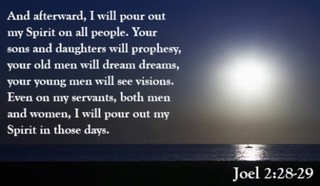
- Recent Translations
- All Translations
Joël 2:4 Meaning and Commentary
The appearance of them [is] as the appearance of horses
in their running, as Jarchi and Kimchi interpret it; they came with, as much swiftness and eagerness, with as much fierceness and courage, as horses rush into the battle. Bochart F8 has shown, from various writers, that the head of a locust is in shape like that of a horse; and Theodoret on the text observes, that whoever thoroughly examines the head of a locust will easily perceive that it is very like the head of a horse; see ( Revelation 9:7 ) . The Chaldeans are often represented as strong and mighty, fierce and furious, and riding on horses exceeding swift, ( Jeremiah 4:13 ) ( 5:15 ) ( Habakkuk 1:6-8 ) ; and as horsemen, so shall they run;
with great agility and swiftness. The particle "as" is observed by some, against those interpreters that apply this wholly to the enemies of the Jews, and not the locusts; and it seems indeed best to favour them; but Theodoret observes, that the "as" here may be taken, not as a note of similitude, but as used for the increase and vehemency of the expression.
F8 Hierozoic. par. 2. l. 4. c. 5. p. 474, 475.
